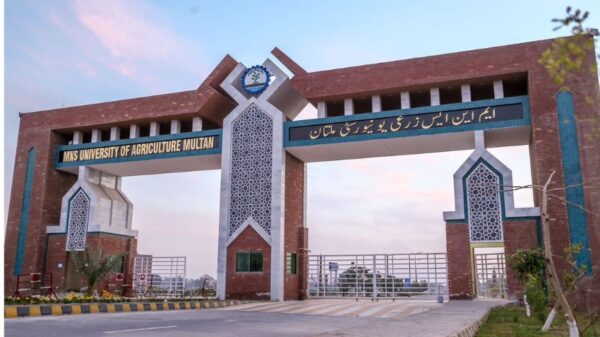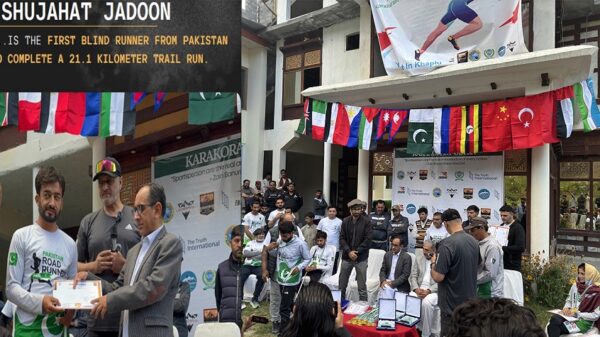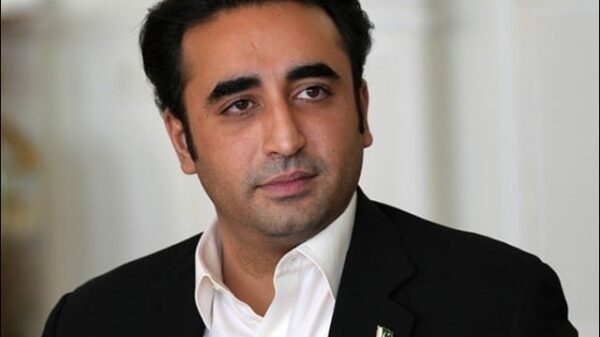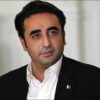ISLAMABAD: More than 700 Pakistanis have been named in the International Consortium of Investigative Journalists (ICIJ) “Pandora Papers” which were made public on Sunday night in Pakistan.
A huge tranche of leaked data on offshore companies that is larger in size and scope than the Panama Papers, hit the global headlines Sunday night, laying bare the financial secrets of the global rich and powerful, including Prime Minister Imran Khan’s cabinet members, financiers, retired generals, media owners and businessmen.
The names of more than 700 Pakistanis have been discovered in the data and the majority of them are tax residents in this country. This trove of information has been named Pandora Papers and it adds significantly to what was discovered in the Panama Papers and Paradise Papers. A veritable Pandora’s box of information has been opened, releasing unending trouble and woes for those named.
For Pakistan, the files pose a big test to the accountability credentials of Prime Minister Imran Khan, who had found the Panama Papers a “God-sent” opportunity to burnish his credentials as an anti-corruption warrior. The names of some of his key team members and financiers have now surfaced in the Pandora Papers.

Finance Minister Shaukat Tarin, Senator Faisal Vawda, PML-Q leader Chaudhry Moonis Elahi, Ishaq Dar’s son, PPP’s Sharjeel Memon, the family of Minister for Industries and Production Khusro Bakhtiar, PTI leader Abdul Aleem Khan, Axact CEO Shoaib Sheikh, are among those with alleged links to offshore companies.
From Pakistan, investigative journalists Umar Cheema and Fakhar Durrani of The News International were part of the research. The consortium released a report on the Pandora Papers titled “Prime Minister Imran Khan promised ‘new Pakistan’ but members of his inner circle secretly moved millions offshore.”
Why are offshore companies controversial?
The files reveal secret offshore holdings of more than 130 billionaires from 45 countries. In 2021, according to Forbes magazine, 100 of these billionaires had a collective fortune of more than $600 billion.
Having offshore companies do business is legal so long as they are declared to tax authorities and to company regulators like the Securities and Exchange Commission of Pakistan (SECP). Businesspersons say they need such entities to conduct their international financial affairs.
However, such practices have come under criticism because this facility is often used to avoid taxes, transfer profits from countries where it is earned to shell companies that exist only on paper in low-tax jurisdictions. The Pandora Papers discovered scores of examples where business units were sold in Pakistan but received payments abroad in bank accounts opened in the name of offshore companies.

Naveed Mughees Sheikh, the owner of Imperial Sugar Mills, followed that path. He didn’t offer his comments when contacted. Bashir Dawood, also mentioned in the Pandora Papers, has a documented case with the FBR, which made the biggest recovery in its history from him in the past.
In other cases, commodities were imported to Pakistan, raising the import bill, and profit was kept abroad. Ahsan Latif, son-in-law of former chairman NAB, Lt-Gen (retd) Khalid Maqbool did so when he imported LPG from Russia in 2009, the Pandora Papers reveal. Ahsan too didn’t offer any comment when approached.
The Pandora Papers also reveal how the criminal proceeds of the fake degree operation of a Pakistani company, Axact, were being remitted by Shoiab Sheikh through bank accounts he opened in the name of a company in the British Virgin Islands.
Asif Hafeez, apparently a gold trader presently under arrest in the UK on charges of heroin smuggling, purchased three properties in London through an offshore company, which has now surfaced in the Pandora Papers.
Having such companies is more controversial for public figures, keeping in view the power they hold, as it could potentially be misused for making money through illicit means. That money could subsequently be stashed abroad as it has on many occasions. This doesn’t happen in every case, but the abuse of shell companies has become rampant.
Media owners, retired generals and businesspersons
More than 700 Pakistanis who are tax-residents in the country or do business abroad have been found in the data covering the duration between 1996 and 2020. Other than the political figures mentioned above, the Pandora Papers have discovered the offshore companies and assets of media owners, retired generals and businesspersons.
Publishers of Jang Group Mir Shakil-ur-Rahman, the Dawn Group’s Hameed Haroon, the Express Group’s Sultan Lakhani and Pakistan Today’s late Arif Nizami have been found holding one offshore company each. Gourmet Pakistan’s owners, who also run a news channel, GNN, have an offshore company whose director is Gourmet’s business executive.
In a first, retired generals and their children have also figured in the Pandora Papers. The former military secretary of Gen (retd) Pervez Musharraf, Lt Gen (retd) Shafatullah Shah owns an expensive apartment in London through an offshore company which is in the names of his wife and son.
Former DG (Counter-Terrorism) of the ISI, Maj Gen (retd) Nusrat Naeem got a company registered soon after his retirement in 2009. The son of Lt Gen (retd) Afzal Muzaffar held an offshore company that was used for a business in the UAE.
Afzal Muzaffar was implicated in a case related to making an illegal investment of Rs4.3 billion in the stock market while being the DG NLC, which caused a loss of Rs1.8 billion.
The wife of former defence production secretary, Lt Gen. (retd) Tanvir Tahir is a shareholder of an offshore company. The sister of Lt Gen (retd) Ali Quli Khan bought properties in the UK through an offshore company. She made this purchase through the fortune she inherited from her deceased father, Lt Gen (retd) Habibullah Khattak.
Former chief of the air staff Air Chief Marshal Abbas Khattak’s two sons also own an offshore company.
According to the report, leaked documents revealed that “key members” of Prime Minister Imran’s inner circle, including cabinet ministers, their families and major financial backers “have secretly owned an array of companies and trusts holding millions of dollars of hidden wealth”.
“Military leaders have been implicated as well,” it said, clarifying that the documents contained “no suggestion” that Imran himself owned offshore companies.
Military officers’ dealings
The investigation revealed that “a luxury London apartment was transferred from the son of a famous Indian movie director to the wife of a three-star general”. This was “one of several offshore holdings involving military leaders and their families”, the ICIJ said.
The general told ICIJ the property purchase was disclosed and proper; his wife did not reply.
According to details, the wife of retired Lt Gen Shafaat Ullah Shah, a former aide to then-president Pervez Musharraf, acquired a $1.2 million apartment in London “through a discreet offshore transaction” in 2007.
The investigation found that the property was transferred to Lt Gen Shah’s wife by an offshore company owned by Akbar Asif, the son of the Indian film director K Asif. Akbar himself is a businessman who owns restaurants in London and Dubai, the Papers reveal.
According to the report, the leaked documents showed that Asif owned a multimillion-dollar property portfolio through a web of offshore companies.
It was through one of these companies, Talah Ltd. — registered in the British Virgin Islands (BVI) — that Akbar transferred the London apartment to Shafaat Shah’s wife. The documents show that the apartment, located near the Canary Wharf financial district, was purchased by the company in 2006. The next year, Akbar transferred ownership of the company to Lt Gen Shah’s wife.
Intrestingly, the investigation found that Akbar’s sister, Heena Kausar, “is the widow of Iqbal Mirchi, a senior figure in a leading organised crime group, D-company”.
At the time, Mirchi was one of India’s most wanted men and was under sanction as a drug trafficker by the US. He passed away in 2013.
According to the ICIJ report, Lt Gen Shah told the investigators that the apartment’s purchase was made “through a former army colleague then acting as a consultant to London real estate firms, not through any personal connection to Asif”. He added that the flat was purchased in his wife’s name because “I already had properties in my name while she did not have any and to balance tax deductions”.
Lt Gen Shah further said that his wife had never met Akbar and that he had only met him once while an aide to then-president Musharraf. He revealed that the meeting happened when Akbar was lobbying for the release of his father’s film “in the corridors of Dorchester Hotel when he had accompanied the hairstylist, who had come to cut Mrs Musharraf’s hair.”
According to the ICIJ report, Akbar had asked Musharraf to allow the release of one of his father’s movies in Pakistan, where there was a ban on Indian movies. “Musharraf granted the exception and later lifted the ban,” the report states.
The Papers also reveal that Raja Nadir Pervez — a retired army lieutenant colonel and later-turned politician, who held various portfolios during the late 80s and early 90s — owned a company registered in the British Virgin Islands, International Finance & Equipment Ltd.
According to the leaked documents, “the firm is involved in machinery and related businesses in India, Thailand, Russia and China”. In 2003, Pervez transferred his shares in the company to a trust that controls several offshore companies.
“One of the trust’s beneficiaries is a British arms dealer. According to UK court documents, one of the trust’s other companies has helped broker arms sales from Belgian manufacturer FN Herstal SA to Hindustan Aeronautics Ltd., a state-owned Indian defence company.
“While he owned International Finance & Equipment, Pervez also held several high-level positions in Pakistan’s government. He was elected to the National Assembly in 1985 and later joined Khan’s party. Pervez did not respond to reporters’ questions.”
Another key former military leader whose name showed up in the Papers is retired Maj Gen Nusrat Naeem, the ISI’s onetime director general of counterintelligence. “He owned a BVI company, Afghan Oil & Gas Ltd, that was registered in 2009, shortly after his retirement. He said that the company had been set up by a friend and that he didn’t use it for any financial transactions.”
According to the report, Islamabad police later charged Naeem with fraud related to the attempted purchase of a steel mill for $1.7 million, but the case was later dropped.
Meanwhile, the Papers also bring to light the notable offshore holdings of close relatives of three senior military figures.
“In an example involving intergenerational wealth transfer, Shahnaz Sajjad Ahmad inherited a fortune from her father, a retired lieutenant general, through an offshore trust that owns two London apartments, purchased in 1997 and 2011 in Knightsbridge, a short walk from Harrods. She, in turn, set up a trust for her daughters in 2003 in Guernsey, a tax haven in the English Channel. Her father was a favourite of Field Marshal Mohammad Ayub Khan, the country’s first military dictator (1958-1969). After her father retired from the army, he founded one of Pakistan’s biggest business conglomerates. Ayub Khan’s son later married into the family and sits on the boards of several of the group’s businesses.
“Taken together, the findings offer a portrait of an unaccountable military elite with extensive personal and family offshore holdings,” the report stated.
Over 600 reporters, 117 countries
According to the consortium, the Pandora Papers is its most expansive exposé of financial secrecy yet, even larger than its predecessor, the explosive Panama Papers, which had set off alarm bells across the world.
More than 600 reporters from around the world, belonging to 150 media organisations spanning 117 countries, participated in the research for two years for the Pandora Papers, which contain 11.9 million files.
The Pandora Papers have unmasked the fortunes of more than 330 public officials in 90 countries. Included among them are 35 current and former leaders of different countries. The king of Jordan, the rulers of Qatar and Dubai, presidents of Ukraine, Kenya and Ecuador, the prime ministers of the Czech Republic and Lebanon, and former British prime minister Tony Blair, all appear in the secret files.
I am an experienced writer, analyst, and author. My exposure in English journalism spans more than 28 years. In the past, I have been working with daily The Muslim (Lahore Bureau), daily Business Recorder (Lahore/Islamabad Bureaus), Daily Times, Islamabad, daily The Nation (Lahore and Karachi). With daily The Nation, I have served as Resident Editor, Karachi. Since 2009, I have been working as a Freelance Writer/Editor for American organizations.










